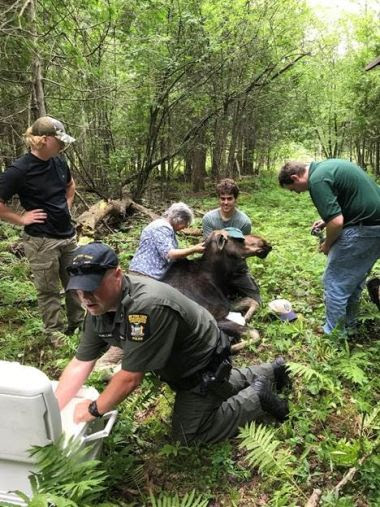
DEC Environmental Conservation Police Officer Highlights |
ECO Actions for Early August
New York State Department of Environmental Conservation (DEC) Environmental Conservation Police Officers (ECOs) enforce the 71 Chapters of NY Environmental Conservation Law, protecting fish and wildlife and preserving environmental quality across New York. In 2017, the 301 ECOs across the state responded to 26,400 calls and issued 22,150 tickets for crimes ranging from deer poaching to corporate toxic dumping and illegal mining, the black market pet trade, and excessive emissions violations. If you witness an environmental crime or believe a violation of environmental law occurred, please call the DEC Division of Law Enforcement hotline at 1-844-DEC-ECOS (1-844-332-3267). “From Montauk Point to Mount Marcy, from Brooklyn to Buffalo, the ECOs patrolling our state are the first line of defense in protecting New York’s environment and our natural resources, ensuring that they exist for future generations of New Yorkers,” said Commissioner Basil Seggos. “They work long and arduous hours, both deep in our remote wildernesses and in the tight confines of our urban landscapes. Although they don’t receive much public fanfare, the work of our ECOs is critical to achieving DEC’s mission to protect and enhance our environment.” Recent missions carried out by ECOs include:
Moose Movers – Clinton County
Watch Where You Step – Rockland County On Aug. 2, ECO Corey Hornicek was patrolling in Stony Point when he noticed a couple of fishermen wearing waders standing in a small public pond. After observing for some time, ECO Hornicek approached the two young men and asked if they could come ashore to show him their fishing licenses. The subjects were happy to show their licenses and pictures of the fish they had caught. One had caught a Chain Pickerel and the other a small Largemouth Bass, both of which were released. As the ECO began to leave, one of the gentleman calmly told the officers about a “pretty cool” snake coiled up not far from where ECO Hornicek was standing. ECO Hornicek carefully went in for a closer look and identified the snake as a Northern Copperhead, one of New York’s three native venomous snakes species.
Two Times the Outreach – Sullivan County
Illegal Cast Netting – Oneida County
Tip a Canoe? Flies Can, Too – Franklin County
|



